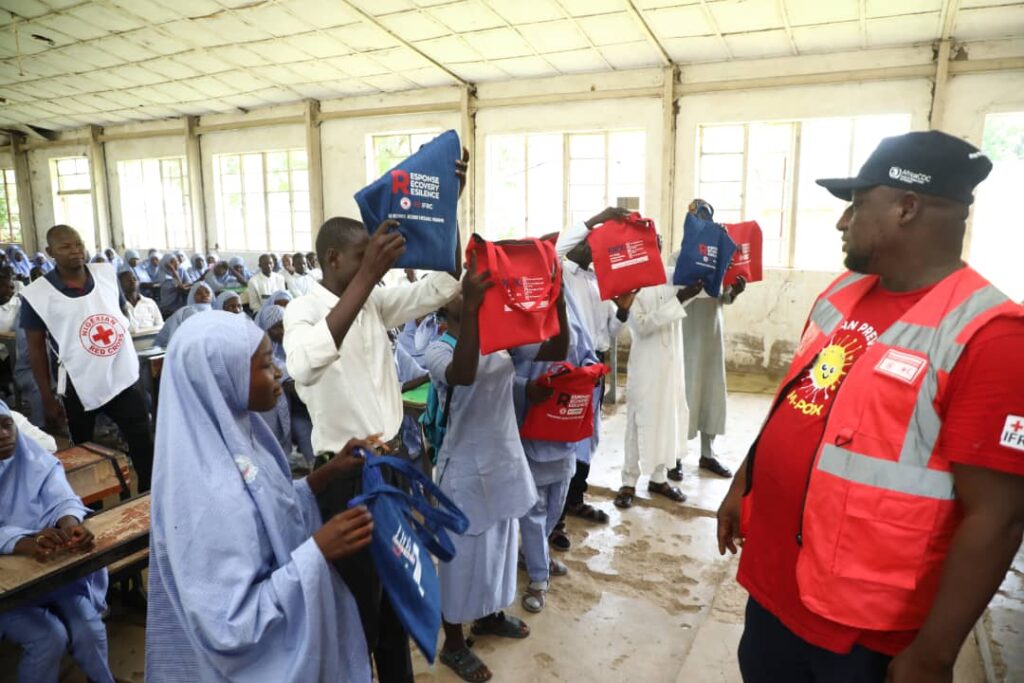From Abubakar Rabilu, Gombe
The Nigerian Red Cross Society (NRCS), in collaboration with the Italian Government, has established Disaster Risk Reduction (DRR) centres in two secondary schools in Gombe State as part of efforts to strengthen disaster awareness and resilience among young people.
The benefiting schools are Government Day Junior and Senior Secondary School, Pilot Gombe, and Government Comprehensive Day Secondary School, Deba.
At the commissioning ceremony, the Red Cross distributed educational materials to students, including tote bags containing DRR information, exercise books, pens, and mathematical sets, aimed at supporting their learning and preparedness.
The Gombe State Branch Secretary of the NRCS, Murtala Aji Alliyu, said the initiative seeks to “catch them young” by equipping students with essential knowledge in hygiene promotion, first aid, information dissemination, and disaster preparedness.
He noted that the programme, currently implemented in 12 states across Nigeria, is designed to reduce disaster risks and promote community safety through early education.
“Our goal is to build a generation that understands how to prevent and respond to emergencies effectively.
When young people are empowered with the right knowledge, they become change agents who contribute to safer and more resilient communities,” Alliyu said.
Representing the Emir of Deba, Alhaji (Dr.) Ahmad Usman, the District Head of Bokna, Alhaji Abubakar Usman Tafidan Deba, commended the Red Cross and the Italian Government for their commitment to improving disaster awareness at the grassroots level.
He urged students to take full advantage of the programme and work closely with their teachers to sustain it.
Speaking on behalf of the principal of Government Day Pilot Secondary School, Vice Principal Mrs. Salifatu Abubakar lauded the Red Cross for its intervention, emphasizing that the initiative would not only benefit the students but also enhance public safety across the state.
Some teachers and students described the programme as timely and impactful, noting that it would improve their understanding of emergency response and preparedness.
They also appealed to other humanitarian and development organizations to emulate the Red Cross by supporting similar initiatives aimed at building safer and more resilient communities.

